Plenty of strawmen left to set ablaze as we wrap up this week of #NoEstimates posts. Read along as I pose the oft repeated arguments from the critics and then toss these worn out strawmen in to the fire.
[featured-image single_newwindow=”false”]More strawmen for the #NoEstimates fire.[/featured-image]
#NoEstimates advocates are anti-management
The 3 main #NoEstimates proponents – Woody Zuill, Neil Killick, and Vasco Duarte – are either in management roles today or have held management roles in the past. After meeting Woody and speaking with Neil and Vasco, I don’t believe any of them suffer from self-loathing…
Looking broader at the #NoEstimates community you’ll find people in roles ranging from developer, tester, analyst, manager, director, vice president, and even c-level executives who are all interested in exploring these and other agile ideas.
#NoEstimates advocates don’t want to do things they don’t like to do/are hard to do
The question here is not about difficulty or desire. Value is at the center of the #NoEstimates discussion. As seen in the Nordstrom video, a small team was able to deliver value back to customers without estimates.
Can such an approach work on larger projects and still give the business the information they need to plan? Certainly.
What does that look like across multiple contexts and domains? That is what people are still exploring and testing.
However, #NoEstimates and Agile are not silver bullets. These ideas are not one size fit all. These are ideas built on transparency, inspection, and adaptation. Inherently, you have to adjust for your domain and context.
And sometimes, Agile is not a good fit for what you are trying to do.
#NoEstimates advocates avoid commitment, fear blame, and loath accountability
This is just a character attack that is unfounded and offensive. Agile and #NoEstimates advocates support transparency, are open to inspection, and are skilled at adaptation.
We embrace uncertainty and cope with the unknown by making small decisions frequently.
Working like this means we embrace the commitments we make to our customers, take responsibility for our work, and are accountable to our teammates to bring the best of our abilities to bear each day. We inspect these commitments frequently and make adjustments as we learn new things about the product we are building.
Perhaps the reaction from developers and team members that some have observed is a disdain for coercion.
When someone with authority addresses the team and says, “I promised those features for next Wednesday. How long will it take you to get them done by next Wednesday?” people get annoyed.
Equally damaging is taking an estimate and turning it in to a deadline. To add insult to injury, these same people shame the team for missing a date they never committed to in the first place.
Coercion is a damaging practice that is often mistaken as “avoiding commitment”, “fearing blame”, and “loathing accountability”.
But that’s not the fault of estimates, as they say. Bad management is to blame!
#NoEstimates does not fix bad management
Sure it can. Agility and #NoEstimates make the work and the systems that impact the work transparent. Transparency is the bane of control minded management (“bad management”). It threatens power structures and the rewards that come with such things.
With #NoEstimates Embracing Customer Collaboration, transparency is magnified.
Clearly Agile and #NoEstimates concepts have the best chance of chipping away at the command-and-control mindset of traditional management (“bad management”).
It’s isn’t shocking that #NoEstimates critics are not happy with the advocates. Look what critics stand to lose.
#NoEstimates arguments appeal to the disgruntled, naive, gullible, and inexperienced
Ad Hominem much? Another baseless attack. Agile minded developers, managers, and executives are motivated, intelligent, and experienced individuals. Along with a wide range of roles, the Agile community has a wide range of skillsets and experiences.
#NoEstimates advocates avoid exchanges with critics
Hardly the case: The 3 main advocates have gone 100’s of tweets deep with many critics and those who ask questions about the #NoEstimates concepts. Each of them are also very generous with their time and participate in 1:1 sessions over Skype, record podcasts, sit down for interviews, and engage in the community through participation at agile conferences.
Are there a few individuals who typically find themselves on the “blocked” list of agilists? Yes.
However, honest inquiry is almost always answered with thoughtful responses and generous donations of time and energy to help others understand these advanced agile concepts.
Here are podcasts with all 3 of the main #NoEstimates advocates sharing their ideas and opening themselves up to questioning, scrutiny, and criticism:
- Woody Zuill – http://zuill.us/WoodyZuill
- Neil Killick – http://neilkillick.com
- Vasco Duarte – http://softwaredevelopmenttoday.com
I’ve yet to see a critic do the same…
